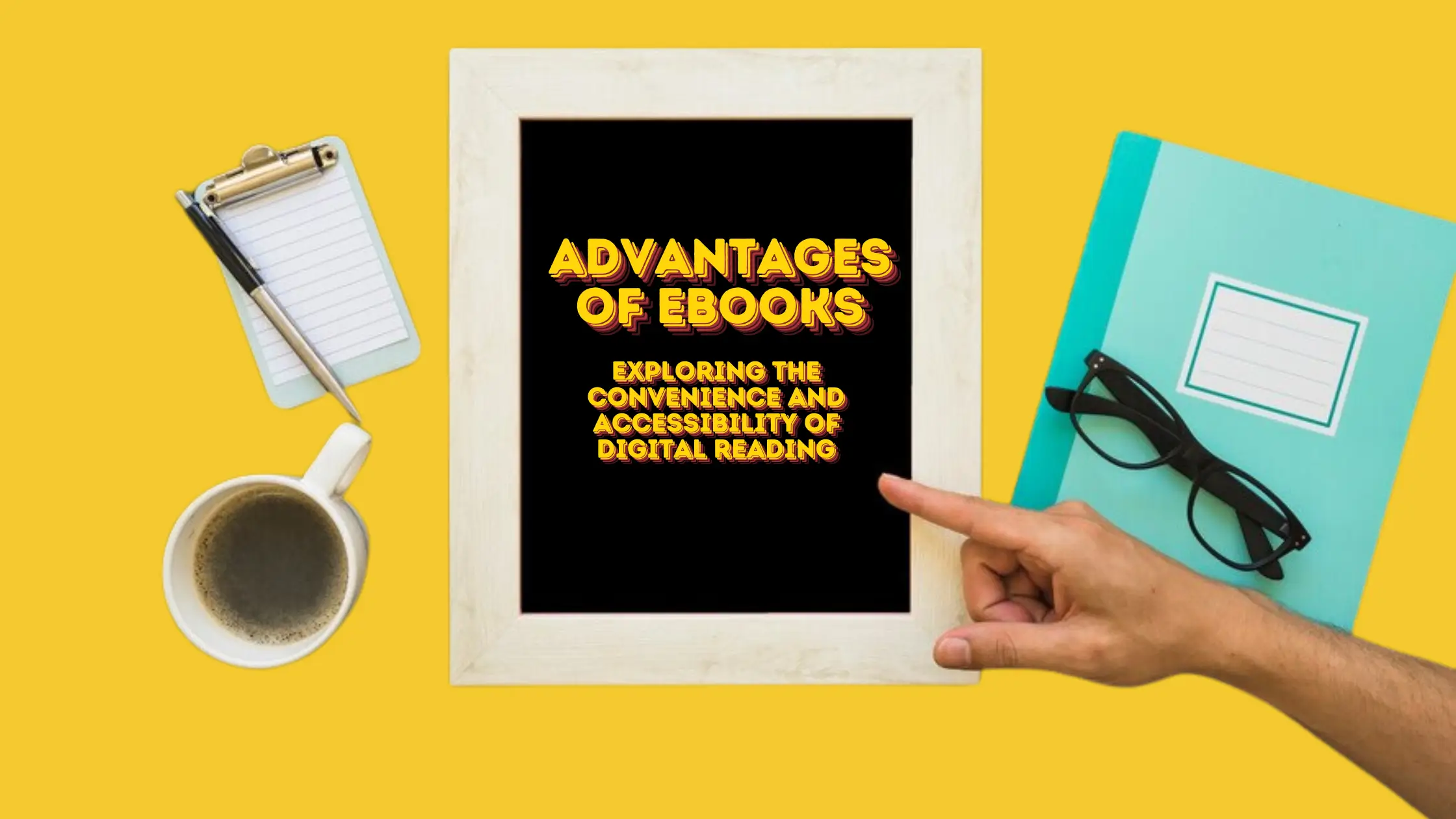Ebooks have transformed the reading experience, offering a new dimension of convenience and accessibility to readers worldwide. Their rise in popularity is no surprise given that they can be easily purchased and downloaded from the Internet, providing instant access to a vast library of titles at the touch of a button. Ebooks offer the unique advantage of being an eco-friendly option; they exist without the need for paper, thereby reducing the environmental impact of book publishing.
With technology at their fingertips, readers find that carrying multiple books in a digital format is far less cumbersome than physical copies. This Advantages of Ebooks is particularly significant for those who are always on the move or students who may need to access several textbooks at a time. Moreover, ebooks often come with features that enhance the reading experience, such as built-in dictionaries, adjustable font sizes, and backlit screens that allow for comfortable reading in any lighting condition.
The digital nature of ebooks also means that they are often more affordable than their print counterparts. The cost benefits, along with the ability to obtain information without leaving one’s desk, make them an appealing choice for consummate readers and professionals alike. For countries and regions with limited access to physical books, ebooks represent a significant step towards democratizing access to information and literature.
Accessibility and Convenience
Ebooks offer unparalleled accessibility and convenience features that have significantly altered the reading experience. They cater to a diverse range of readers’ needs, from immediate access to enhanced portability, making reading more adaptable and user-friendly than ever before.
Immediate Access and Download
Readers can purchase and download ebooks within moments, bypassing the traditional wait for physical delivery. This instantaneity is ideal for students and professionals who require timely access to resources for learning and work.
Portability
With ebooks, an entire library can be condensed into a single device. This convenience, highlighted by Fulton Books, means that any number of books can be carried around without the burden of weight or space, expanding where and how one can read.
Reading in the Dark
Unlike their print counterparts, ebooks offer the advantage of built-in lighting, allowing for comfortable reading in low-light or dark environments. This feature is not only convenient but can also be less intrusive for those who share their reading space.
Cost Efficiency
Ebooks offer notable financial advantages to consumers and distributors alike, stemming from lower retail prices to the elimination of physical production costs.
Lower Prices of Ebooks
Retail Prices:
Digital books often come with lower price tags compared to their physical counterparts. For instance, the cost per use of an Elsevier e-book is significantly less than a hardcopy, and prices have a tendency to decrease over time due to the lack of physical materials and production processes that drive up costs.
Additional Savings:
Consumers save on long-term costs such as storage and potential late fees from libraries. Educational institutions may also find that providing students with electronic textbooks is a cost-efficient solution that can enhance student engagement without the financial burden of traditional textbooks.
Space and Material Savings
Production Expenses:
Ebooks eliminate the need for physical materials — no paper, no printing, no binding. This reduction not only affects the cost but also the economics of scale, as highlighted by the Independent Book Publishers Association.
Storage Savings:
They occupy virtual space, providing consumers with extensive personal libraries without the physical constraints. Space savings translate directly into cost benefits, as individuals and institutions alike avoid the expenses associated with storing and maintaining physical books.
Environmental Benefits
The shift towards ebooks presents clear environmental advantages including the reduction of paper usage and conservation of energy.
Paperless Reading
Ebooks inherently require no paper, thereby saving trees which are crucial for absorbing carbon dioxide and providing oxygen. The absence of paper in the production of ebooks eliminates the need for the water, chemicals, and other resources typically used in the paper manufacturing process.
Energy Conservation
Despite ebooks requiring energy for digital reading devices, they offer a form of energy conservation over their lifespan. Unlike printed materials, ebooks avoid the repeated energy costs associated with printing, distributing, and shipping physical books, leading to a lower overall carbon footprint when used extensively.
E-readers, with lifespan expectations often exceeding a decade, present a one-time environmental cost that can be offset by the volume of ebooks read over time.


